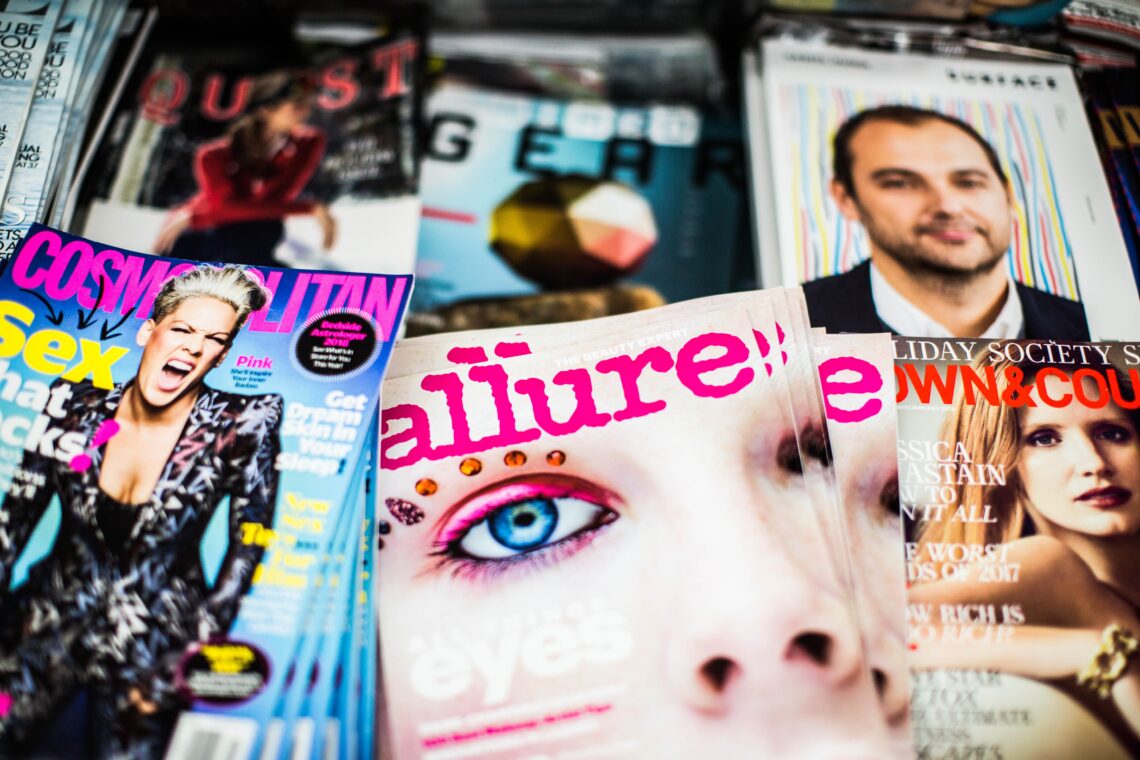
Reclaiming the narrative of mental health
Nobody can know.
Alexandra Grifone still remembers her parents’ reaction when her middle school guidance counsellor suggested that she should attend therapy to deal with their divorce. They were adamant that nobody could find out, especially other family members.
“They viewed it as embarrassing,” Grifone says. “It was kind of seen as a weakness, as something you wouldn’t be proud of.”
Growing up, her parents’ lack of understanding around mental illness left her without the tools or outlets to properly understand what she was going through.
She says that the media’s negative portrayal of mental illness strongly influenced her parents’ conceptualization of the topic, such as the ways in which the media ostracized Britney Spears for her struggles.
Grifone recalls seeing headlines blaring at her from the cover of magazines, like the 2007 cover of The New York Post that had a picture of Britney Spears shaving her head followed by the punchline: “Bald Britney a buzz kill.”
The New York Post wasn’t the only publication that sensationalized Spears’ mental health struggles during the late 2000s. Daily News ran an issue featuring Spears attacking a car with an umbrella titled “Britney’s fury!” Daily Mirror’s take on the situation simply had the headline “Meltdown” with promises of “more amazing pictures inside.”
Grifone says that it became common for people to label Spears as being “crazy,” and everything she did afterwards was portrayed through the lens of that narrative.
“I was really young and I didn’t learn to feel empathy for her,” Grifone says. “I didn’t seek to know why she was reacting in this way because I saw how others were treating her or speaking about her. She was just portrayed as a big joke.”
Spears isn’t the only celebrity whose mental health struggles have been sensationalized. Lindsay Lohan’s suicide contemplation was conveyed as “dramatic” by Star Magazine, Amanda Bynes was portrayed as “insane & on the run” by Life & Style, Amy Winehouse’s death in 2011 after a long struggle with addiction was announced by The New York Post with the headline, “They tried to make her go to rehab, she said no no no, Amy Winehouse dead at 27.”
Decades before them, it was Marilyn Monroe who was continuously bullied by the media. While checking out of a mental health facility in 1961 after a bout of depression following the death of her close friend, Clark Gable, the press viciously harassed her. They hurled hurtful questions and accusations at Monroe, blocking her exit to her limousine. It took 16 police officers and hospital security staff to clear a path for her from the mob.
Similarly to Winehouse, the announcement of her death was devoid of empathy. Headlines like “Marilyn Monroe kills self, found nude in bed…hand on phone…took 40 pills” were splashed across newspapers.
Grifone admits that the media’s dehumanization of celebrity mental health struggles not only influenced her parent’s viewpoint of mental health but also her own.
“I still find myself trying to actively unlearn my own stigmas against my own mental health issues,” she says.
Grifone’s experience is not a singular one. Dr. Taslim Alani-Verjee, a clinical psychologist and founder of Slim Centre for Mental Health, says the media is a prime resource for learning and can often be the only example that some people have for formulating their understanding of mental illness.
“If the media is portraying individuals with mental illness as problematic, as violent, as unable to be successful, these are the things that we are going to believe about individuals with mental illness,” she says.
Julia Beato remembers watching an episode of Shameless with some friends when she was younger. One of the main characters, Ian Gallagher, was depicted as experiencing a bipolar episode.
It wasn’t the portrayal of the bipolar episode that bothered her, but rather her friends’ reactions to it. They began throwing around comments labelling him as being “crazy” and “insane.”
While Beato herself isn’t bipolar, she has experienced depression and anxiety throughout most of her adolescence and feels a connection to the character. Her friends’ negative reactions have had a deep effect on Beato that she still feels to this day regarding her own struggles.
“It was difficult to not see myself as crazy since then,” she says. “It makes it challenging to understand mental health in anything but a negative light.”
Alani-Verjee believes that the internalization of these negative portrayals can discourage people from seeking help or even acknowledging their own mental health struggles.
“If mental illness looks a certain way because that’s the only story you’re seeing in the media, then you don’t want to be associated with that kind of behaviour,” she says. “It could also cause you to doubt whether you’re even struggling with mental health because your mental illness doesn’t look like the one being portrayed.”
Within the last few years there’s been a surge of celebrities speaking candidly about their mental health struggles. In May 2021, tennis player Naomi Osaka announced her withdrawal from the French Open following threats of suspension for her decision to opt-out of press conferences on account of mental health concerns. Gymnast Simone Biles similarly withdrew from the 2020 Tokyo Olympics to focus on her mental state. Singer and actress Selena Gomez has also been open about her struggles with depression and the benefits of speaking with a therapist following a 2016 visit to a mental health facility.
Alani-Verjee says these disclosures about their struggles is a movement towards normalizing discussions around mental health, as celebrities are taking control of the narrative and not allowing their struggles to be sensationalized.
“It’s not someone else making the disclosure for them as if we found out this awful secret,” she says. “It’s people who are saying ‘here is how I’m struggling but also here is how I’m super successful and this is how I’m adjusting my life to make sure I’m taking care of myself.’”
Alani-Verjee says that it’s helping to create an environment in which mental health struggles can be normalized and not be considered a weakness. She hopes that it signals a future in which the stigma and shame around mental illness will continue to decrease.
About the author
Olivia Matheson-Mowers is a former reporter for Youth Mind. When she’s not writing, or playing with her cat, Daisy, you can find her curled up in her heated blanket watching seasons 1-6 of Dragon Ball Z and complaining about seasons 7-9.







